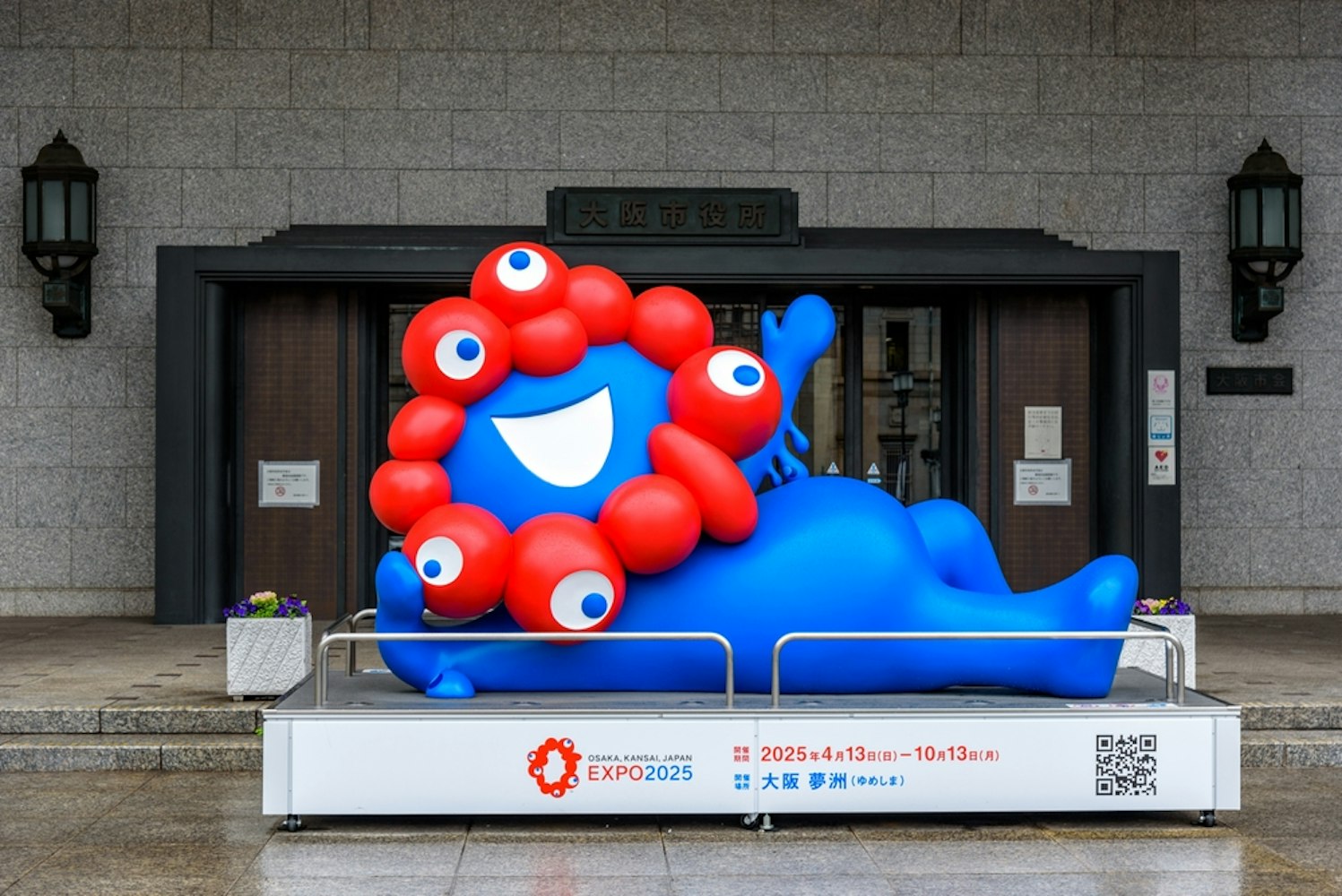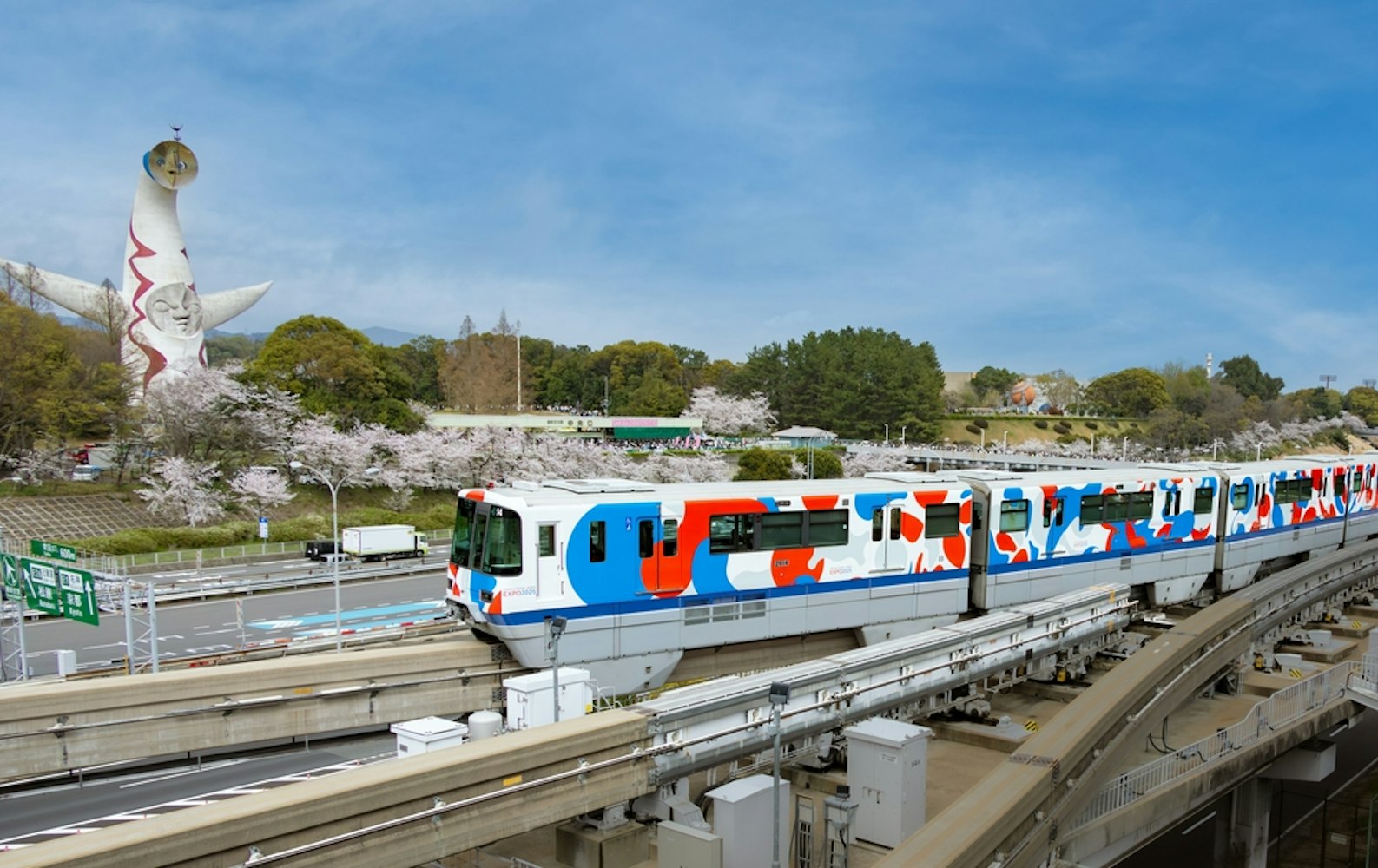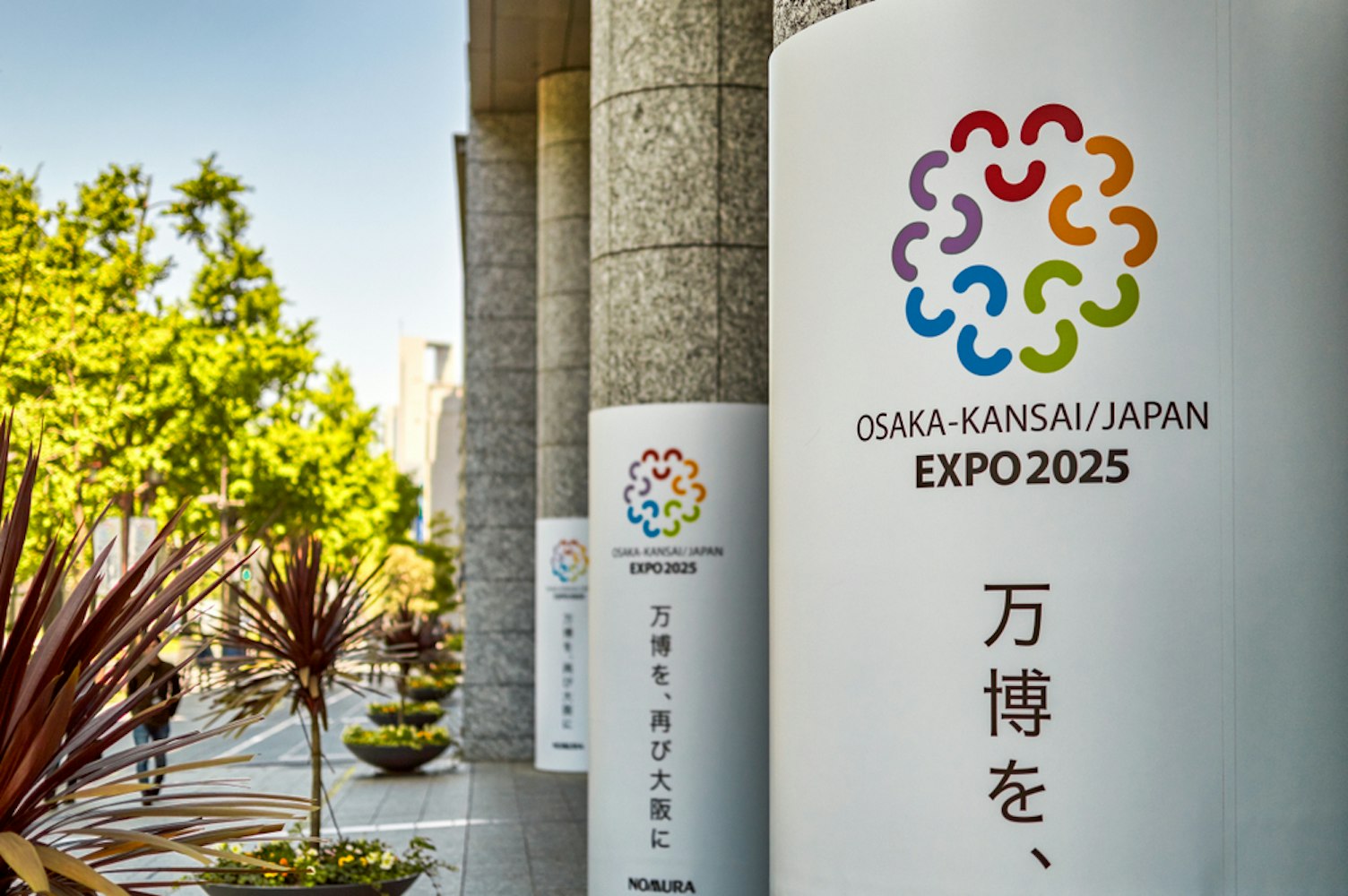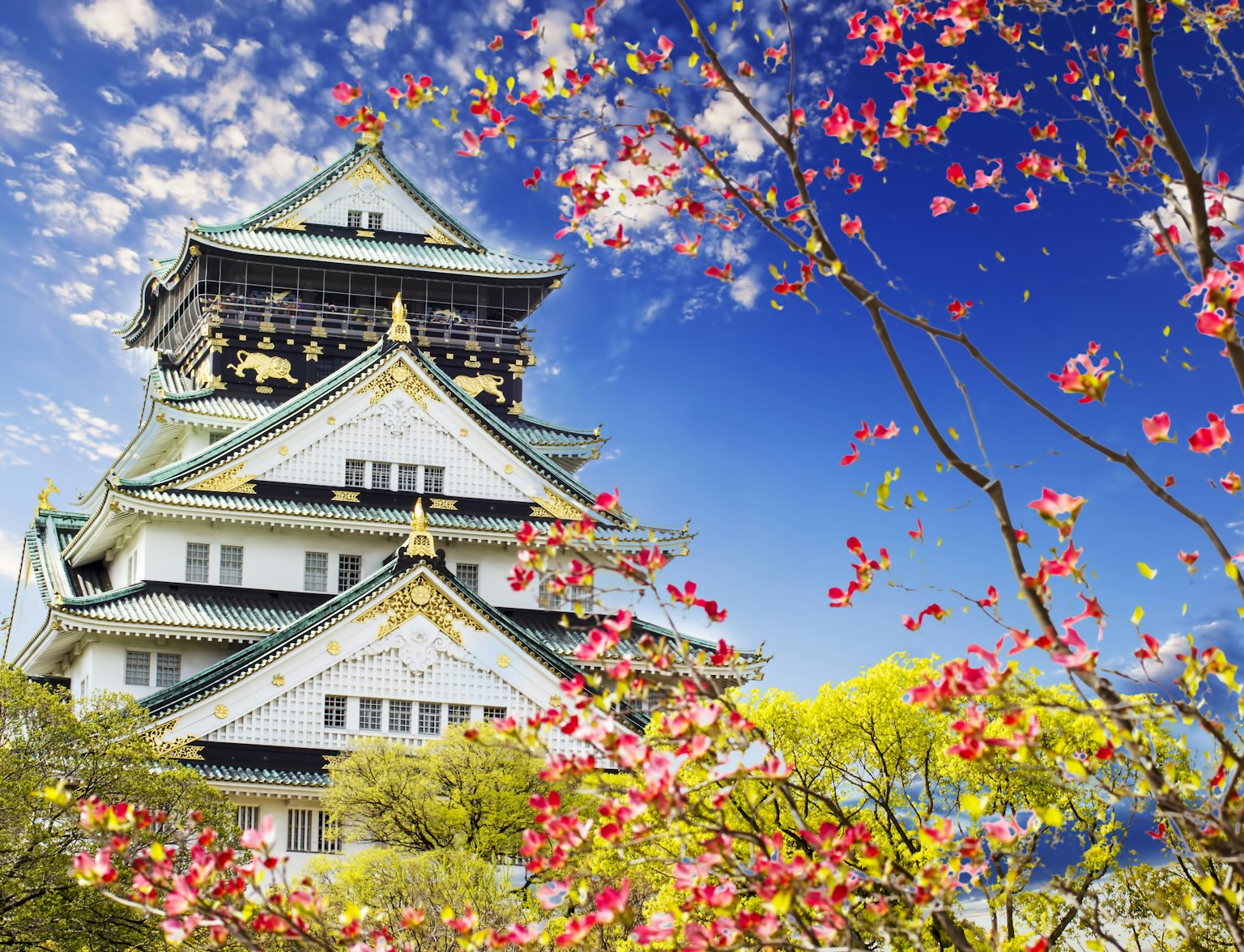

The world is gearing up for a monumental event in 2025—the World Expo. Slated to run from April 13, 2025, to October 13, 2025, at the iconic Yumeshima Island in Osaka, this six-month-long global gathering promises more than just technological marvels and cultural exchanges.
With the theme "Designing Future Society for Our Lives," this Expo is shaping up to be a forward-thinking event with sustainability at its core. As climate change concerns and environmental challenges become more urgent, the Osaka 2025 Expo highlights sustainability as one of its main pillars, demonstrating how the world can tackle these issues collaboratively and innovatively.

At the heart of the Expo’s vision is a commitment to the United Nations' Sustainable Development Goals (SDGs). These 17 goals provide a blueprint for addressing global challenges such as poverty, inequality, climate change, and environmental degradation.
The Osaka 2025 Expo will focus on how technology, social innovation, and collaboration between nations can drive real progress toward these goals. Several pavilions and exhibitions will explicitly connect to SDGs, showcasing how nations and industries are working to achieve a sustainable future.
Japan Pavilion: Exhibiting Japan's efforts toward achieving SDGs, focusing on clean energy, waste reduction, and the circular economy.
Sustainable Food Solutions: A dedicated global food sustainability zone highlighting zero-waste agricultural techniques and plant-based alternatives.
Japan’s "Society 5.0" vision—an advanced, human-centered society driven by technological innovation—will take center stage at the Expo. This concept integrates artificial intelligence, the Internet of Things (IoT), and robotics to create sustainable and inclusive communities.

Society 5.0 envisions cities that use technology not only for convenience but to improve environmental outcomes through smarter resource management and energy use. The Expo will showcase these smart city technologies to solve urban challenges such as traffic congestion, energy inefficiency, and pollution.
Smart Energy Grids: A focus on energy-efficient city planning with smart grids that optimize power usage and reduce emissions.
Eco-Friendly Transportation: Showcasing electric and autonomous vehicles that minimize the carbon footprint of urban transportation.

Embark on an unforgettable adventure in Tokyo with the eco-friendly magic of electric bikes.
The architectural landscape of the Osaka 2025 Expo will itself be a testament to sustainable design. Pavilions and other structures are being constructed with eco-friendly materials and methods, emphasizing energy efficiency and environmental consciousness.

This focus on green architecture extends to the way the buildings will be powered, cooled, and even dismantled after the Expo concludes, leaving minimal environmental impact.
Recycled and Renewable Materials: Many of the pavilions will be built using recycled materials or sustainable alternatives, minimizing the environmental impact of construction.
Energy-Efficient Buildings: The designs incorporate natural light, ventilation, and renewable energy sources like solar panels and wind turbines to minimize the need for traditional energy consumption.
Modular Construction: Some pavilions will be designed for easy dismantling and repurposing, ensuring they have a life beyond the Expo and contribute to circular economy principles.
The Expo will take significant steps to reduce its carbon footprint, from construction to visitor transport. Renewable energy sources, particularly solar and wind power, will be prominent throughout the site. Additionally, transportation to and within the Expo will prioritize sustainability, including electric buses, shared electric scooters, and bicycles.

Unlock the best of Osaka with our exclusive one-day pass!
Solar Panels: Solar energy will power many of the pavilions, ensuring clean energy is utilized throughout the event.
Wind Turbines: The Expo will make use of wind energy to reduce reliance on fossil fuels, further cutting down on carbon emissions.
Electric Vehicles (EVs): The Expo will use electric vehicles for on-site transport, with charging stations powered by renewable energy.
Hydrogen-Powered Buses: Japan is also showcasing hydrogen fuel cells as a clean transportation option, offering rides on hydrogen-powered buses around the Expo site.

Explore Joetsu Myoko Station and its surroundings with ease by renting an electric assist bicycle.

The Expo organizers have outlined an ambitious zero-waste plan that will set new standards for global events. Waste management systems at the event will focus on waste separation, recycling, composting, and the reduction of single-use plastics.
Attendees will be encouraged to participate in waste reduction efforts through recycling bins, digital incentives, and educational campaigns about sustainable practices.
Reusable Utensils: Expo visitors will be encouraged to use reusable cutlery and containers, which will be widely available at food stalls and pavilions.
Digital Ticketing and Guides: To minimize paper waste, most Expo information, including tickets and maps, will be distributed digitally.
On-Site Recycling Facilities: The Expo will feature extensive recycling facilities for sorting waste, with volunteers and signage to guide visitors on how to properly dispose of their items.
Greenery and natural landscapes will be an integral part of the Expo site, creating a balance between technological innovation and nature. Expo organizers have prioritized the conservation of local ecosystems and biodiversity, integrating parks and green spaces into the design.

These areas will serve as both relaxation zones for visitors and educational spaces for biodiversity conservation efforts. Visitors will also have the opportunity to explore nature trails and garden exhibits that demonstrate how urban spaces can foster biodiversity and improve the quality of life for city dwellers.
Urban Farming Demonstrations: Learn about vertical farming, aquaponics, and other methods of growing food sustainably in urban settings.
Tree-Planting Projects: Visitors can take part in tree-planting initiatives aimed at reforesting areas around the Expo and offsetting carbon emissions from the event.
One of the sub-themes of the Expo, "Empowering Lives," emphasizes the intersection of social sustainability and environmental goals. Exhibits will explore how community-led initiatives, education, and economic empowerment can lead to better environmental stewardship.
Visitors will have the chance to see how various countries are addressing issues such as clean water access, renewable energy, and sustainable farming in ways that empower their populations while protecting natural resources.
Water Conservation Programs: Exhibits showcasing sustainable water management solutions, including desalination technologies and rainwater harvesting systems.
Educational Workshops: The Expo will host workshops to teach visitors about sustainability practices they can implement in their lives, from energy conservation to waste reduction.
Technology will be a key driver of the Expo’s sustainability efforts, from smart cities to clean energy. Innovations in AI, IoT, and big data will be highlighted, showing how they can be leveraged to optimize energy use, reduce waste, and build greener infrastructure.

Visitors can interact with exhibits that demonstrate real-time energy consumption reductions, track environmental metrics, and monitor resource usage, offering insights into how future cities can become smarter and more sustainable.
AI-Driven Sustainability: Exhibits demonstrating how artificial intelligence can optimize energy grids, waste management systems, and urban planning.
Smart Agriculture: Learn about AI-powered farming techniques that conserve water and increase crop yields with minimal environmental impact.
Food will also play a major role in the Expo’s sustainability efforts. The culinary options will emphasize farm-to-table dining, local sourcing, and zero-waste cooking techniques.
Restaurants and food stalls will feature menus made from seasonal ingredients and sustainably farmed produce. Additionally, visitors will learn about food waste reduction techniques, composting, and how to implement sustainable practices in their own kitchens.
Zero-Waste Kitchens: Some food stalls will operate as zero-waste kitchens, demonstrating how restaurants can prepare meals without producing waste.
Local and Organic Ingredients: Many food options will be sourced locally from farms in the Osaka-Kansai region, reducing food miles and supporting local economies.

Embark on a unique journey with the 3-Day Farm Stay at Chabu Dining.
The Osaka 2025 World Expo is more than just a global event—it is a vision of a greener, more sustainable future. Through innovative technology, responsible design, and community-driven initiatives, the Expo will showcase the world’s best efforts in sustainability.
It will serve as a testing ground for ideas that could shape cities, societies, and industries for years to come. For those who care about the future of our planet, the Expo is an unmissable opportunity to witness how international collaboration can drive meaningful change toward a sustainable future.
What is the Osaka Expo 2025 plan?
The Osaka Expo 2025 will run from April 13 to October 13, 2025, on Yumeshima Island. The Expo focuses on the theme "Designing Future Society for Our Lives," with an emphasis on sustainability, technology, and global collaboration. It will feature pavilions from various countries, exhibits on future innovations, and initiatives aligned with the United Nations' Sustainable Development Goals (SDGs).
How much is a ticket to World Expo 2025?
Ticket prices for the Expo 2025 will start at around 3,700 Yen. There will be various ticket categories such as early bird discounts, summer passes, full season passes, and special discounted tickets, available for purchase online as e-tickets.
What will happen in Expo 2025?
Expo 2025 will showcase global innovations in areas like clean energy, technology, and health. It will include national pavilions, interactive exhibits, and discussions on solutions to global challenges, particularly around sustainability and future society.
Which event will be held in Osaka in April 2025?
The Osaka-Kansai World Expo 2025 will start in April 2025, with the opening on April 13. This major international event will run for six months, attracting participants from around the world to showcase advancements in technology and sustainability.



